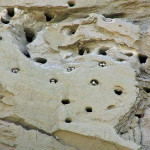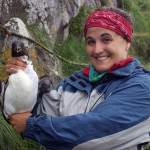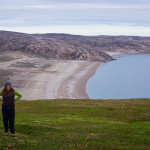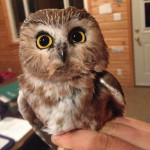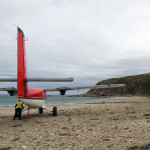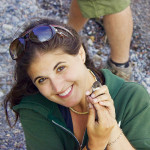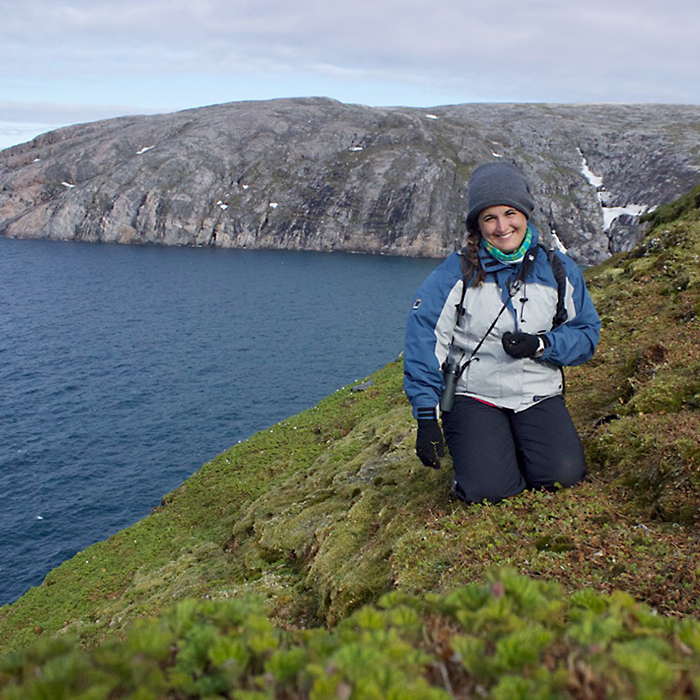
She may not have eaten pre-digested oysters, but for Chatham native Tianna Burke, a month spent near the Arctic Circle provided her with enough memories to last a lifetime.
Burke spent July studying a species of sea birds known as the thick-billed murre to gather information on its population as part of a project headed by a McGill University professor.
They worked on the cliffs of the deserted island studying eggs, chicks, taking blood samples from the birds and observing other activities on Coats Island, at the northern end of Hudson’s Bay.
She fell in love not only with her work, but also with the landscape.
“It’s like something out of a National Geographic magazine or TV show,” she said. “We were able to watch beluga whales, dozens of walruses and polar bears. It was ten degrees which was perfect for me because I don’t do humidity well.”
The polar bears actually shortened the trip when nearly three dozen of them began frequenting the island.
The long days were something she had to get used to.
“The sun would set at 2:30 or 3 a.m. and would rise at 3:30 or 4 a.m. It never really got dark.”
The Trent master’s candidate also learned much about the way of life of the Inuit, the indigenous people of Nunavut.
“We had a guide who taught us so much about the traditional way of life. I was impressed that absolutely nothing went to waste. They live in harmony with their surroundings.”
She said the guide told her how when a walrus was killed, it was and remains a custom to examine its stomach contents for food.
“The hunters have a process of knowing whether the oysters eaten by a walrus are still good for consumption,” she said. “I wasn’t offered any and I’m not sure what I would have done. Even the guide agreed it was different but it’s a custom they’ve had for generations.”
After completing her work in the north, Burke attended the North American Ornithological Conference in Washington D.C. where she presented the first section of her thesis.
“Going from the north, where there were only two camps of four researchers each to a metropolitan area such as Washington was quite a difference,” she said.
Burke’s presentation examining how bank swallows have adapted to man-made breeding areas such as gravel pits was one of 100 made during the event.
Despite her nervousness, she placed second among students.
“I’m not a huge fan of speaking in front of a crowd of renowned scientists. In fact, I was absolutely terrified and I don’t remember my presentation but I did well.”
Burke completed her undergraduate degree in environment and life sciences at Waterloo but credits faculty at Ursuline College with providing her direction.
“I’ve always been interested in the natural world and animals and I was thinking about becoming a veterinarian or even a meteorologist at least until the physics part,” she laughed.
“The Pines had a new environmental course with
Dan Wilson teaching,” she said. “It was fantastic and when we took a trip to Mattawa, (near North Bay) I was hooked.”
She estimates she has another year’s work on her Masters.
“It usually takes three years so I’m right on schedule.”
Her dream job would be “almost anything” that combines the theoretical with the practical.
“My dream integrates research and outreach. I’d like to do presentations to engage people to get back outside and sharing what I know. Science should be something for everyone.”


